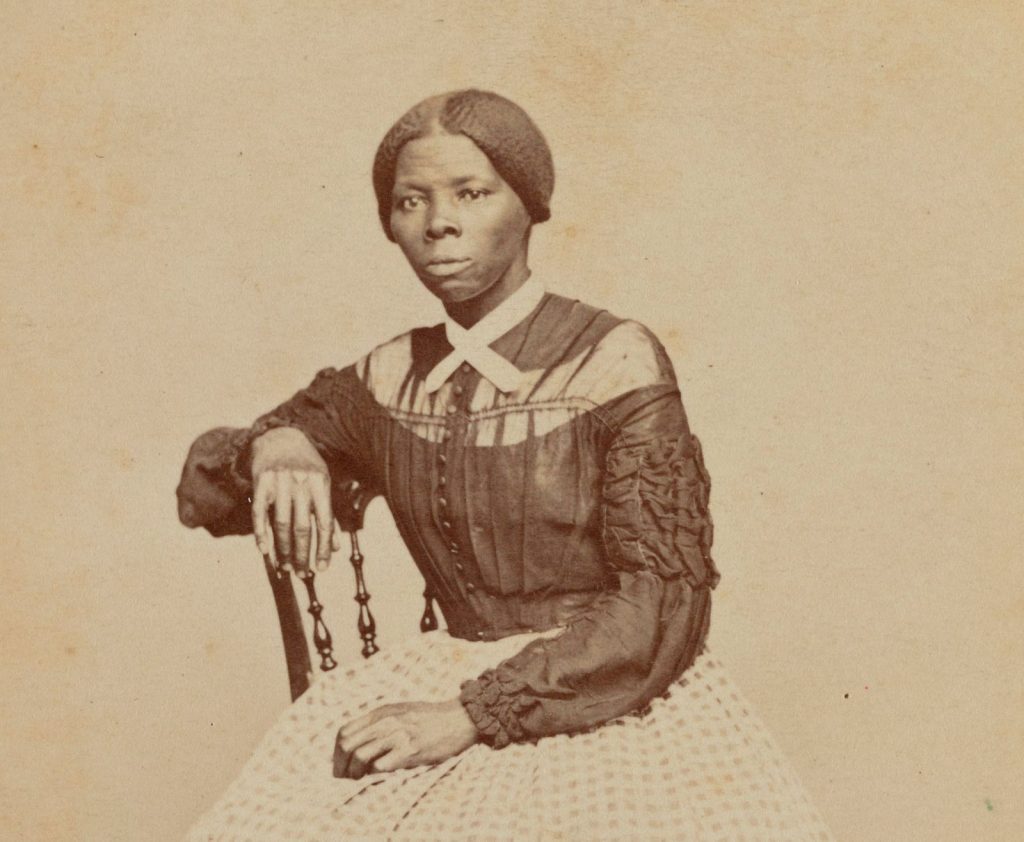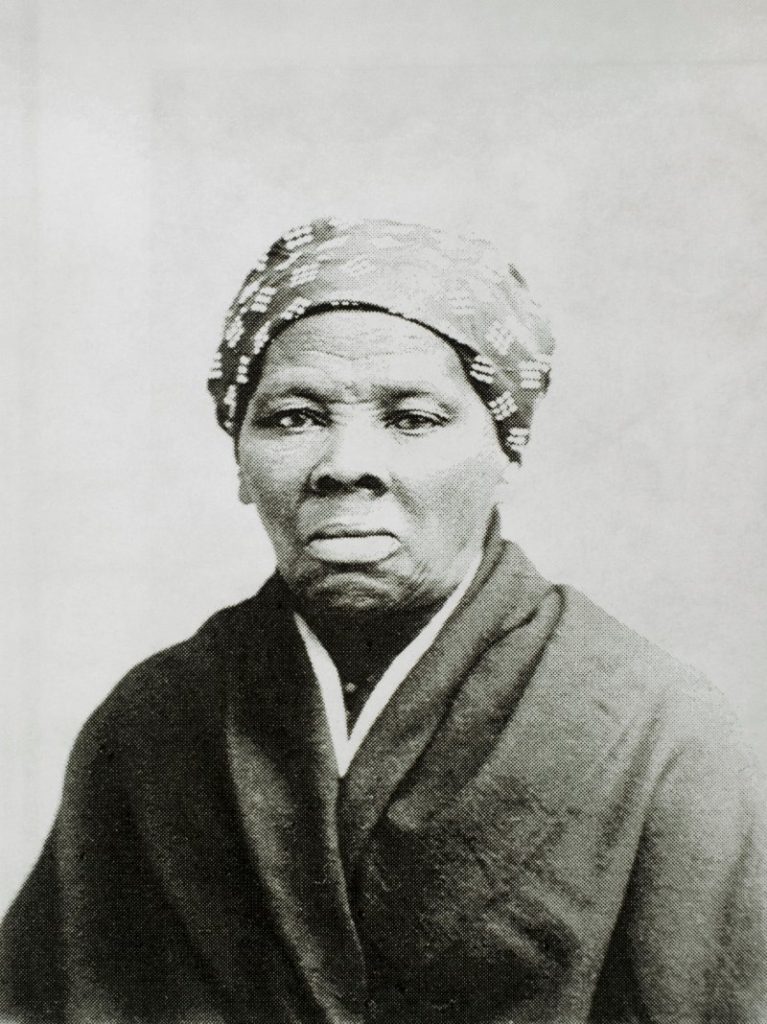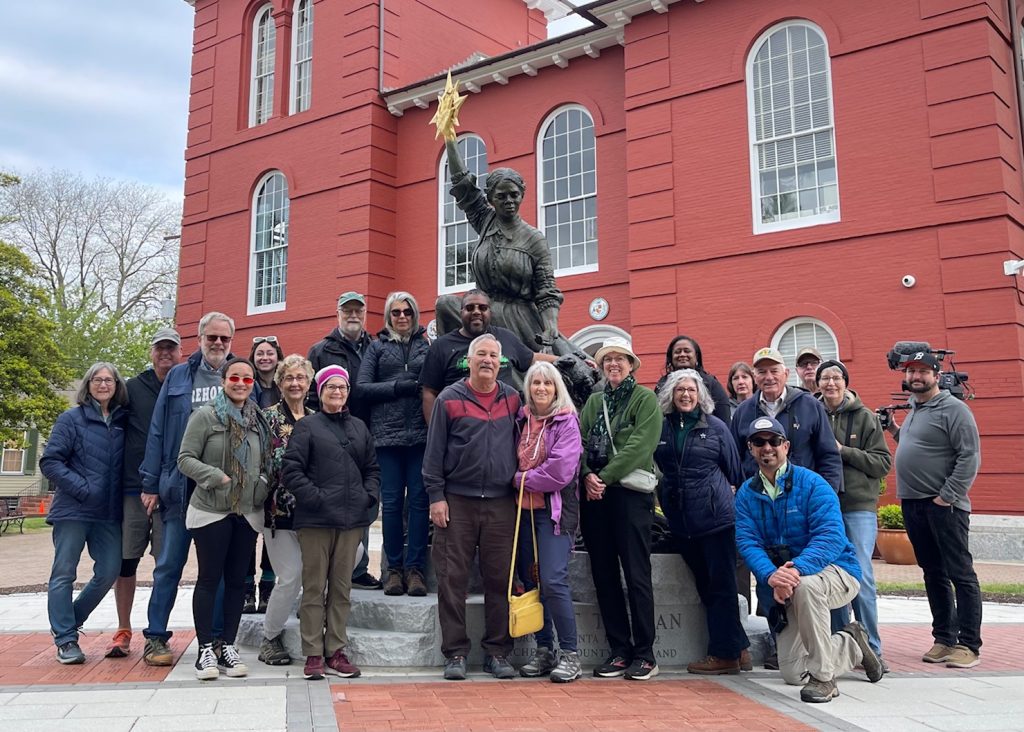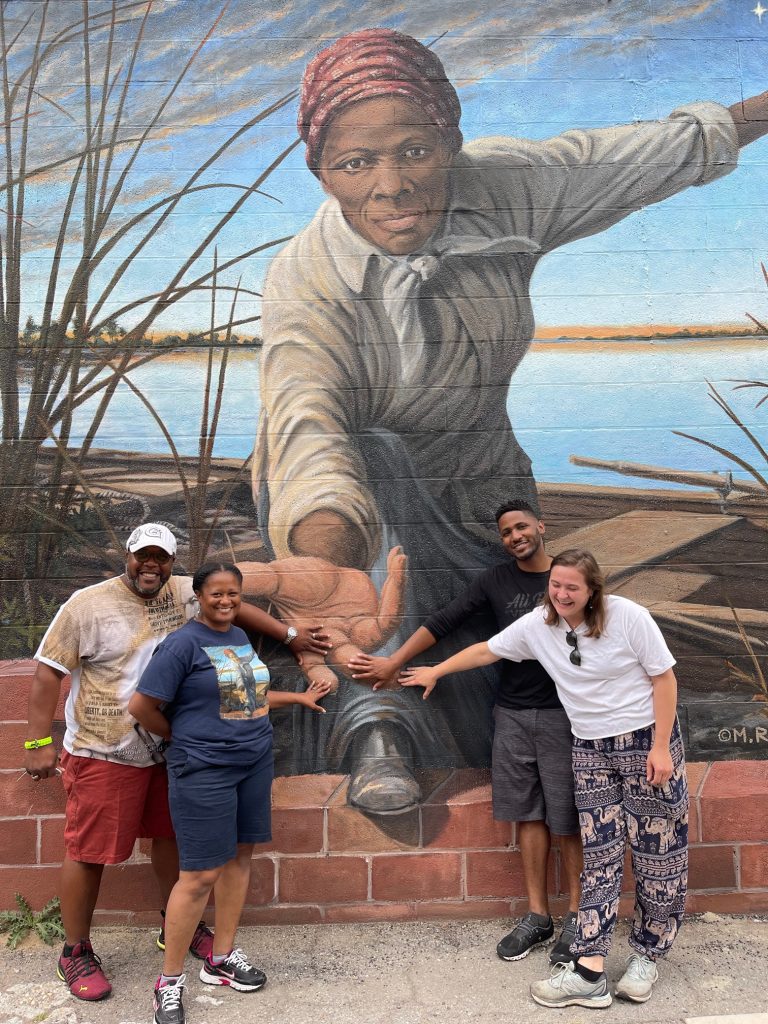Birding the Harriet Tubman Byway: June 12
Blackwater NWR/Dorchester County: A defiant young woman in the Chesapeake marshes

Join Harriet Tubman Tours and Delmarva Birding Weekends as we go birding along the Harriet Tubman Underground Railroad Byway in Dorchester County, MD. During our guided, self-driven tour, we’ll learn about the life and times of the famed freedom seeker and human rights activist known as “The Moses of Her People,” Harriet Tubman. The route courses through the farms and Chesapeake Bay marshes of Dorchester County, home to Blackwater National Wildlife Refuge and some of the best birding and Bald Eagle watching on America’s Eastern Seaboard.
2025 Tour Schedule
Birding the Harriet Tubman Byway (DRIVING/HIKING)
Date: Thursday, June 12, 2:00 – 6:00 pm
Cost: $65/person
Meeting location: small roadside pull-off at the Brodess Farm Site, located near 2881 Greenbrier Road, Bucktown, MD 21613. The GPS Coordinates are: 38.459031,-76.048522
One hour before the tour begins: We invite you to meet your guides at the Harriet Tubman Center for Cultural and Educational Advancement, located at 3030 Center Drive, Cambridge, MD 21613. The GPS Coordinates are: 38.552433, -76.026112. The Center is owned and operated by Alex and Lisa Green of Harriet Tubman Tours. At the Center, we can tour this beautiful facility, visit the exhibits area, and use the restroom before departing for the Brodess Farm Site.
Please note: Cost does not include entry to the Blackwater NWR Wildlife Drive. A $3.00 per vehicle entrance pass admits the passholder and fellow occupants of a single, private non-commercial vehicle. You can not purchase a day pass online. Passes are obtained at the self-service kiosk at the entrance to the Wildlife Drive. Please fill out the provided envelope, place your entrance fee inside (cash or check – no credit or debit cards accepted), tear off your pass stub, and place the envelope in the silver lock box. Holders of Federal Recreational Lands Passes (“American the Beautiful” passes) and valid Duck Stamps are admitted for free. If one person in the vehicle possesses a Federal pass, the entire vehicle is admitted for free. Click here for more information.
Please note: We require a minimum of 10 guests to run this tour. We currently have 3 on the waitlist.
If you are interested in joining us, please email dmvbirds@gmail.com with your name and the number of people in your party. When we reach our minimum, we’ll email you with registration information.
Discover the birds and wildlife that Harriet Tubman would have known as a young girl growing up in Dorchester County, MD

Harriet Tubman was born around 1822 in Dorchester County, Maryland. She was brought into the world as Araminta “Minty” Ross, the middle of nine children born to Harriet “Rit” Green and Ben Ross, who were both enslaved. Her childhood was spent toiling on the plantation of Edward Brodess, who often hired his enslaved people out to neighboring farmers.
In 1849, Harriet Tubman escaped Maryland’s Eastern Shore to Philadelphia, but she returned at least 13 times to rescue around 70 people, including her parents, family members, and friends. In the face of incredible danger, she guided them safely to freedom as a conductor of the Underground Railroad — a secret network of people, places and routes that provided shelter and assistance to escaping slaves. By 1860, Harriet Tubman had earned the nickname “Moses” for liberating so many enslaved people at great risk to her own life.

During her formative years on the Brodess Farm and as a conductor of the Underground Railroad, Harriet Tubman would have been intimately familiar with the birds and wildlife of Dorchester County. She used the call of a Barred Owl to alert freedom seekers that it was safe to come out of hiding and continue northward.
The same birds that Harriet Tubman would have known more than 170 years ago still inhabit the fields, forests and marshes of Blackwater National Wildlife Refuge. Bald Eagles can be observed year-round, and active nests are visible during the winter and spring. During autumn and winter months, you can discover ducks, geese, swans and raptors. Spring and summer bring Osprey, egrets, shorebirds and warblers. American White Pelicans can be observed here in the winter and spring. More than 260 species have been documented along Blackwater’s ~4-mile Wildlife Drive.
Watch the video from WBOC TV16’s Outdoors Delmarva:

These are just a few of the stops we will make along the ~20 mile, four hour driving and walking tour:
- Brodess Farm site, Harriet Tubman’s childhood home
- Bucktown Village Store, site of Harriet Tubman’s first act of defiance
- Blackwater National Wildlife Refuge Wildlife Drive
- Long Wharf, Portal to Slavery – Gateway to Freedom
- Dorchester County Court House, featuring the “Beacon of Hope” statue
- “Take My Hand” mural, painted by artist Michael Rosato

We recommend that you visit the Harriet Tubman Museum and Educational Center in Cambridge and the Harriet Tubman Underground Railroad Visitor Center near Blackwater National Wildlife Refuge on your own before or after your tour begins.
Driving Route:

We will meet at the small roadside pull-off at the Brodess Farm Site, located near 2881 Greenbrier Road, Bucktown, MD 21613. The GPS Coordinates are: 38.459031,-76.048522. Please make certain to fuel up your vehicle and use the restroom before you arrive. We will have access to portable toilets during the tour along the Blackwater Wildlife Drive.
After visiting the Bucktown Store and Blackwater NWR, we will drive ~20 miles on our tour to Long Wharf, located at the end of High Street in Cambridge. We will end with a short driving and walking tour in Cambridge that will end at the “Take My Hand” mural painted by artist Michael Rosato, located at 424 Race Street, Cambridge, MD 21613.
Some suggstions to make your birding trips more enjoyable:
- Please make sure you have enough fuel in your vehicle for the trip, as we will not stop at gas stations along the route.
- We encourage you to explore Downtown Cambridge before and after your tour. You will find bakeries, restaurants, breweries and shops all within easy walking distance of the Harriet Tubman Museum in Cambridge.
- Wear appropriate clothing and shoes for spring weather near the Chesapeake Bay!
- Carry sunscreen, sunglasses and/or a hat to protect yourself from the sun. You can still get sunburn in the winter.
- Bring rain gear as all events are rain or shine.
- Try to arrive a little before the scheduled trip departs.
- Most trips are not appropriate for young children. Please use your discretion when registering.
- Be courteous to your fellow birders. Speak quietly and turn off cell phones during trips.
- Please don’t walk ahead of the group. Let’s stay together so that we can all see the bird.